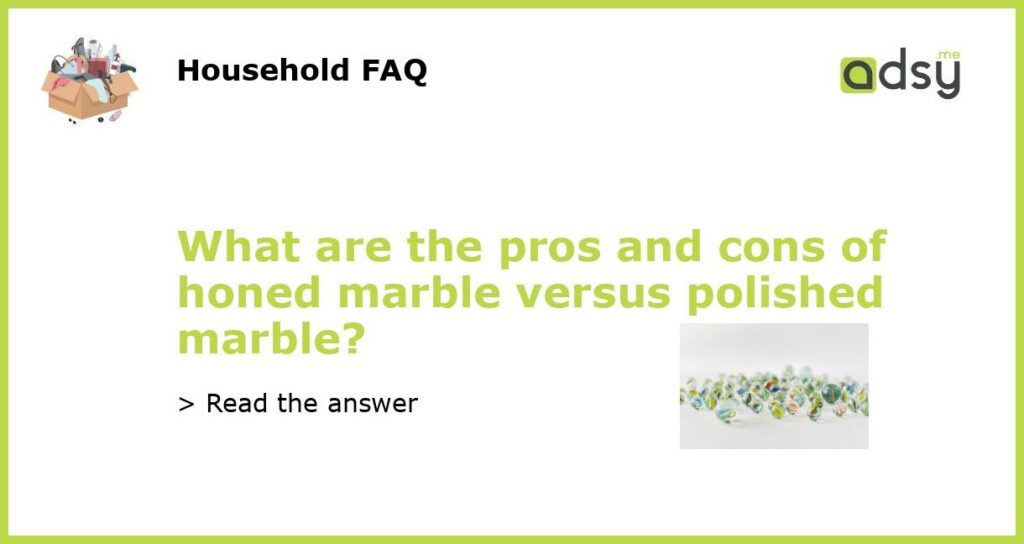Pros and Cons of Honed Marble vs Polished Marble
Marble is a timeless and elegant feature in any home. However, when it comes to choosing between honed or polished marble, there are pros and cons to consider. Below we will look at each type and explore the advantages and disadvantages.
Honed Marble
Honed marble has a matte finish, which lacks the high shine of polished marble. This finish results from grinding the marble with a diamond pad until it creates a smooth, flat surface. Because it lacks the reflective surface, it is less prone to showing scratches, etches, and water spots, making it ideal for high-traffic areas like the kitchen and bathroom. Additionally, honed marble has a natural, organic feel that provides warmth to any space.
On the downside, honed marble requires more frequent sealing than polished marble since it is more porous, more susceptible to staining and absorbing moisture, and acidic substances are more inclined to etch the surface.
Polished Marble
Polished marble has a reflective surface that captures lighting and accentuates the veining of the stone, creating an iconic, luxurious look. The process of obtaining a polished finish involves using progressively higher grit diamond abrasives to grind and polish the marble with water, creating the stunning high-gloss effect.
However, because of its reflective surface, polished marble tends to show scratches, etches, and other imperfections more than honed marble. The reflective surface is more prone to water spots, which may dull the surface over time. High traffic areas may require regular maintenance, and the surface should be cleaned promptly to avoid watermarks or etching.
Appearance and Design
Deciding between honed or polished marble often comes down to personal preference and the overall design of your space. A polished finish may work better with a more formal, classic look, while honed marble works better in a natural, casual space.
The finish of the marble can also impact the color and appearance of the stone. For instance, honed marble may appear lighter in color since it does not reflect light, while polished marble can have a more vibrant color. Keep in mind that honed marble is less reflective, resulting in a more subtle veining pattern.
Maintenance
When it comes to maintenance, honed marble is easier to maintain. It only needs to be sealed twice a year in comparison to a polished finish that needs more maintenance. In contrast, a polished finish requires frequent cleaning and more maintenance to preserve the high-gloss look. Spills should be wiped up promptly to avoid stains, and acidic substances should be dealt with immediately to prevent etching.
Overall Cost
Cost is another factor to consider when deciding between honed or polished marble. Because honed marble requires less maintenance, it can be more affordable long term. In contrast, a polished finish may have a higher initial price, but in the long term, the cost of maintenance may increase your expenses.
Ultimately, when weighing the pros and cons between polished and honed marble, consider the look you want to achieve in your home and the maintenance efforts you are willing to put in to accomplish that.






